“The world is big, the world´s problems are even bigger” – Kirstin Kohler
This is exactly how we felt when the first step was to find out exactly how large the problem area is for Sustainable Development Goal 15 – Life on Land.
But first things first, what exactly does Life on Land mean and what exactly is included here?
The goal is to protect and sustainably improve life on land. More specifically, it means protecting, restoring and promoting sustainable use of terrestrial ecosystems, sustainable management of forests, combating desertification, halting and reversing land degradation and halting biodiversity loss.
With this clearer idea of what SDG 15 is, we sat down for a quick brainstorming session where we wrote down ad-hoc possible problems that could affect this SDG and are also regional problems. We were amazed at how many possible problem areas we were able to name on the fly.
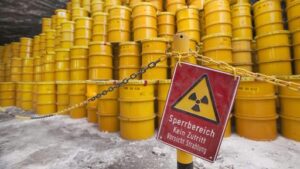
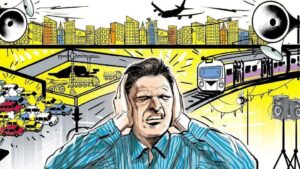
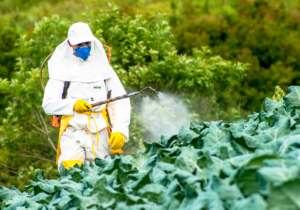
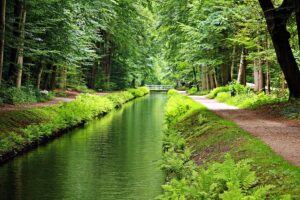
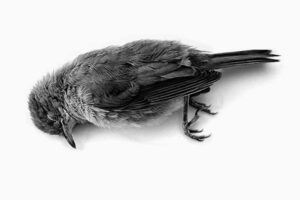
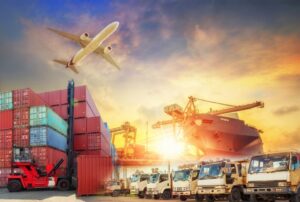

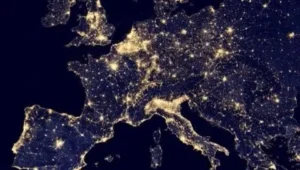
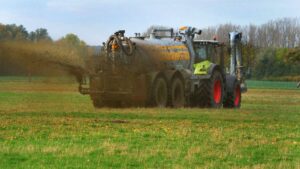
In the next step, we tried to cluster the ideas we had gathered, as many problems are similar or related to each other. Finally, we picked out the 9 most interesting problem areas – also called opportunities here – in order to be able to look at them more closely and, after intensive research, to bring together the essential points and backgrounds. We were able to summarize the collected results in small overview maps – the Opportunity Cards.
Have a look at the Opportunity Cards listed below 🙂
Opportunity Areas
Atomic Waste
Nuclear energy is still one of the leading energy suppliers in Germany. This leads to more and more nuclear waste, which emits radioactive radiation and takes millions of years to decay. How do we store this waste safely and recognizably for the many generations to come in the future?
Birds
Birds are important for the fragile ecosystem. In recent years, an ever-increasing extinction of species has been observed in Germany – spring is becoming quieter. What are the causes here and how can they be combated?
Freight Traffic
Truck traffic on Germany’s autobahns has been increasing more and more in recent years. This leads to increasing environmental pollution, more noise and blocked roads. The main reason for this is the increase of just-in-time deliveries. How can we achieve a turnaround to more environmentally friendly freight transport?
Invasion
Globalization and climate change mean that more and more foreign species are being invaded and can become native. In the process, they displace native species and can import diseases. How can we counter this problem and protect native species?
Light Pollution
Light pollution has increased dramatically in recent decades. This not only causes problems for humans but also has a strong impact on wildlife. Do we really need so much artificial light in the future?
Renaturation
In the course of the past years, with increasing industrialization, man has artificially adapted nature more and more. This leads to unimagined environmental problems. How could these areas be re-naturalized in a meaningful way.
Nitrat
Mannheim is located in a region with excessively high nitrate contamination of the groundwater. The reason for this is the extensive animal farming and overfertilization of the fields. How can we counteract the risk of health damage here?
Noise Pollution
Inhabitants of large cities – like Mannheim – are exposed to increasing noise pollution. This often results in negative health effects. How could more effective noise protection be implemented?
Pesticides
Pesticides are increasingly used for effective agriculture. These are often not degradable and harm humans, animals and the environment. How can a more environmentally friendly alternative to pesticides be created.
Team Snapshot:
Highlight
The clear highlight was the very inspiring talk “Why are we here” by Markus Nordberg, which we were able to follow digitally from home in the early hours of the morning. He really made us rethink our thinking and encouraged us that “only from great effort can come much more”. To overcome limits and also make the almost impossible mentally allow, this guiding principle will remain in our memory.
“The world as we have created it is a process of our thinking. It cannot be changed without changing our thinking” – Albert Einstein
Markus Nordberg mentioned Einstein a few times in his lecture and the statement Einstein makes here perfectly describes our feelings and impressions of the past weeks. Let’s keep this as a motivating sentence for our team here.
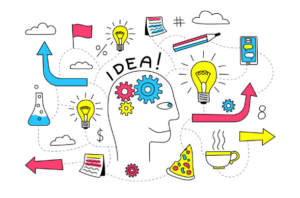
Next Steps
The next few weeks the Exploration Festival will take place, this year due to the ongoing pandemic situation and related travel restrictions for the Australian teams, unfortunately only online. But we are still very excited and look forward to meeting the other teams.
In addition, we continue to work on the selected opportunity topics and also try to get expert opinions and arrange interviews.
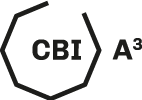
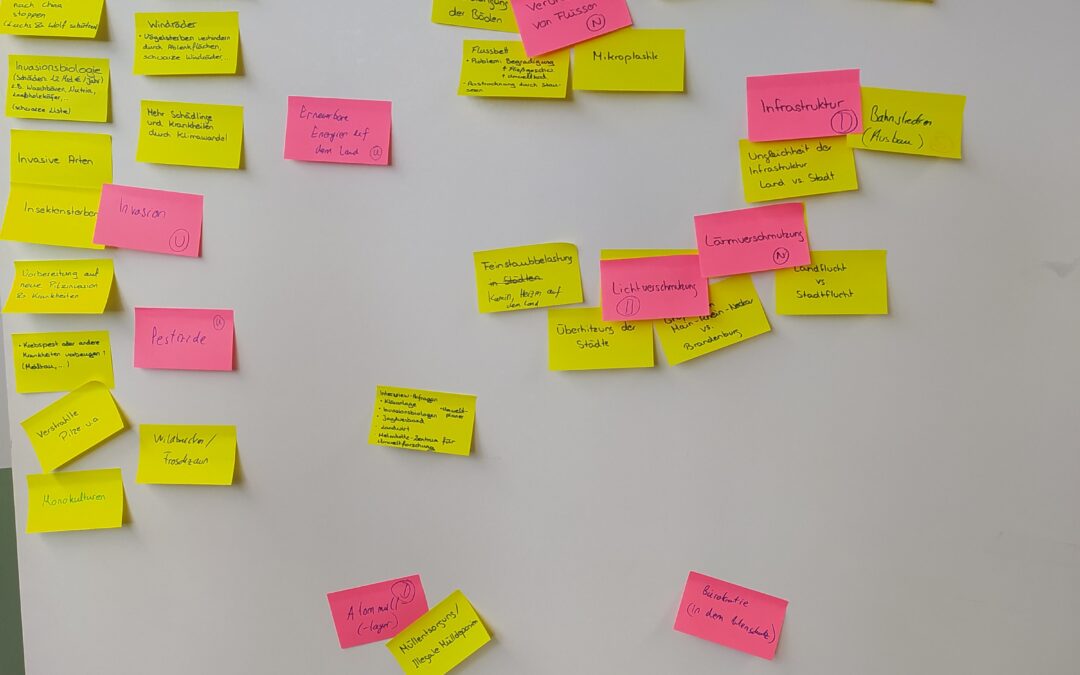
You have really highlighted interesting problem areas, the relevance is pretty visible! Further on, keep up the good work and dig deeper 🙂